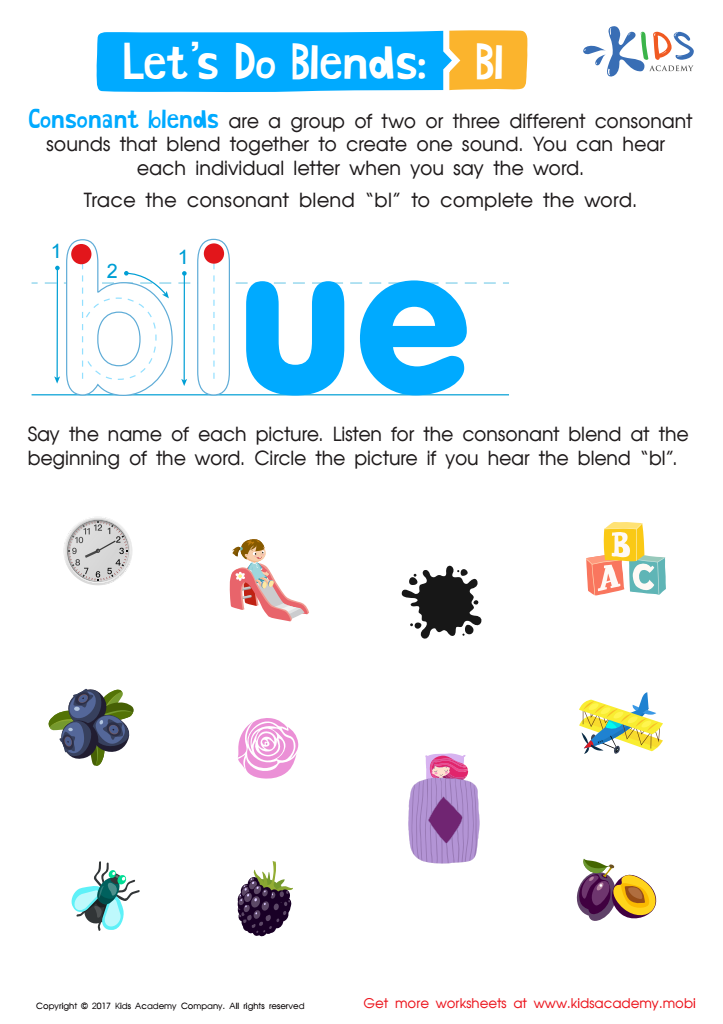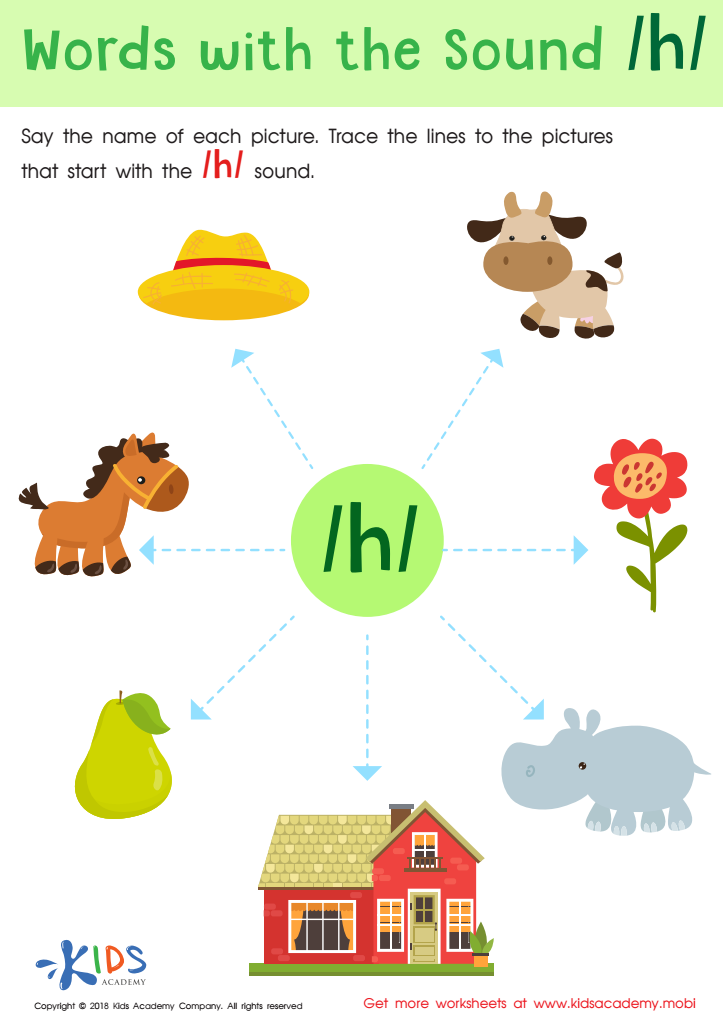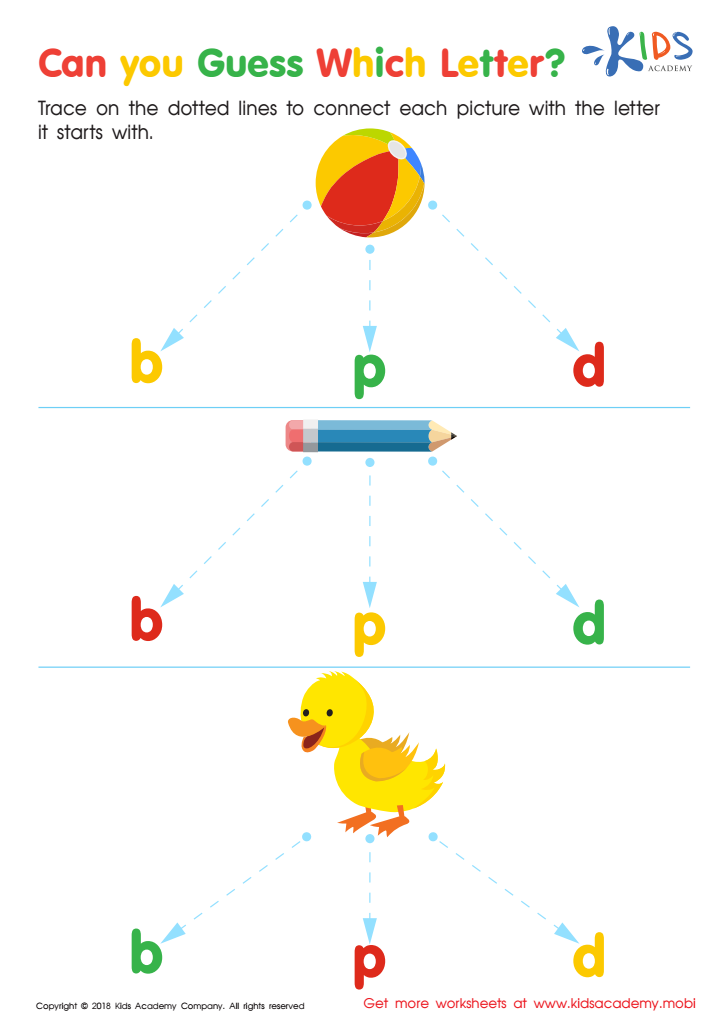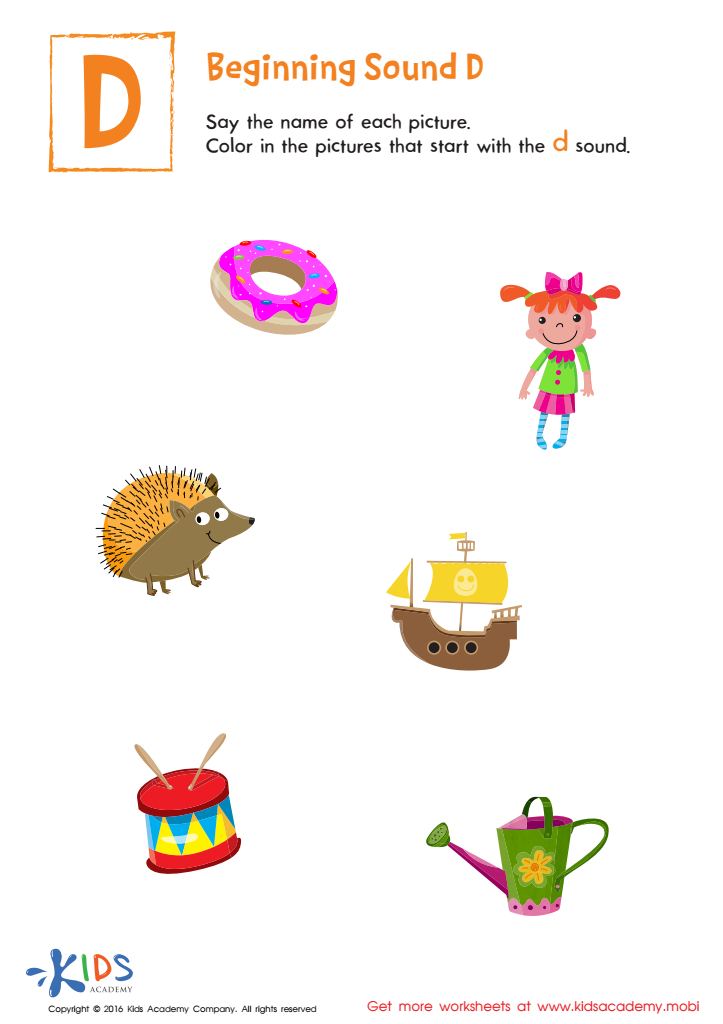Vocabulary expansion Normal Beginning Sounds Worksheets for Ages 3-8
5 filtered results
-
From - To
Explore our engaging "Vocabulary Expansion Normal Beginning Sounds Worksheets" designed for children ages 3-8. These interactive worksheets foster early literacy by enhancing vocabulary while introducing basic phonetic sounds. Perfect for home or classroom use, each worksheet promotes skills in recognizing and pronouncing beginning sounds, helping young learners connect words with their corresponding letters. Fun activities encourage children to identify objects and develop a robust vocabulary through repetition and practice. Ideal for developing essential reading skills, these worksheets offer a playful approach to learning, ensuring your child is well-prepared for future academic success. Start the journey to literacy today!


Beginning Blends: "Bl" Words Worksheet


Words with sound h Reading Worksheet


Can you Guess Which Letter? Worksheet


Words with sound f Reading Worksheet


Beginning Sound D Worksheet
Vocabulary expansion, particularly focusing on normal beginning sounds, is crucial for children aged 3-8, as it lays the foundation for effective communication and literacy skills. At this age, children are incredibly receptive to language, and their ability to recognize and produce beginning sounds enhances their phonemic awareness—a key component of reading readiness. Teachers and parents should prioritize vocabulary development because it directly impacts a child's abilities in both spoken and written language.
When children expand their vocabulary through engaging activities, they become better equipped to express their thoughts and feelings. This not only boosts their confidence but also enhances their social interactions and overall academic performance. Furthermore, recognizing and articulating beginning sounds plays a pivotal role in decoding words, making phonics instruction more effective.
Additionally, a rich vocabulary aids in comprehension, allowing children to make connections between words and ideas. This is essential for later academic success, especially in reading and writing. By participating in vocabulary-building activities, such as storytelling, rhyming games, and sound recognition exercises, parents and teachers can create a supportive environment that fosters curiosity and a love for learning, ultimately setting the stage for lifelong success in literacy and communication.
 Assign to My Students
Assign to My Students














